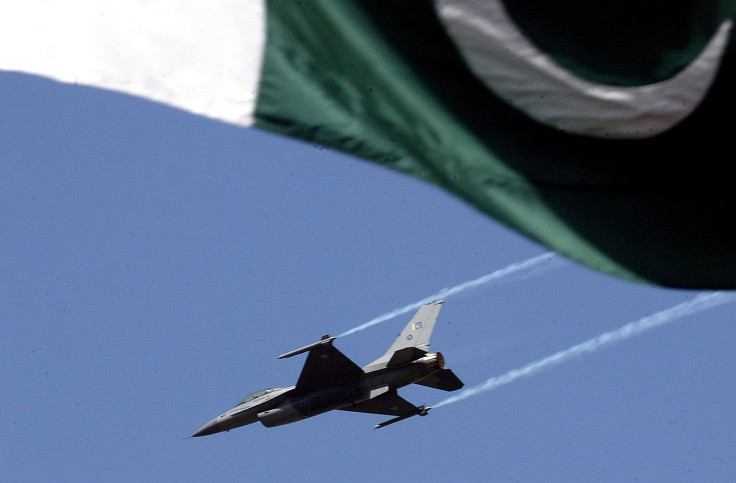Was US-Pakistan F-16 Deal Stopped? Congress Acts Over Fears Of Civilian Casualties

A potential sale of F-16 jets to Pakistan is being delayed in the Republican-held Congress, which could lead to diplomatic clashes between Washington and Islamabad. While the initial deal was approved by the foreign-military-sales arm of the Pentagon and the White House last year, pro-Indian U.S. representatives are alleged to have spearheaded a campaign to stop the sale, fearing that the jets could be used against civilians.
"Congress is well aware of the fact that it is gravely discommoding Pakistan, but has no qualms about that," Brian Coughley, the former Australian defense attache to Islamabad, told Defense News Tuesday. "The arrangement for supply of the eight aircraft, as proposed, however, is not dead, but it will require a great deal of work by the administration to revive it — and the White House might not be keen on that."
It was previously reported by the English-language newspaper Dawn Tuesday that Rep. Ted Poe, R-Texas, and Rep. Dana Rohrabacher, R-Calif., had questioned what Pakistan would need the F-16s for, suggesting that they could be used against civilians.
“I don’t know how an F-16, with all of its hardware on there for combat, can be used for humanitarian aid. If they were buying C-130s, I could see those being used for humanitarian aid,” said Poe, whose comments were echoed by Rohrabacher, who said Pakistan would use the military hardware against “their own people.”
Both members are part of a growing pro-Indian lobbying group on Capitol Hill that Dawn contends is now second only to its pro-Israel counterpart in terms of clout, and opposes all military sales to Pakistan.
The pro-Indian lobbying group campaigns predominately on behalf of New Delhi's business and political concerns in Washington but more recently has shifted to opposing actions on the Hill that favor Pakistan. The group's most recent move to stop Pakistan from gaining the jets is rooted primarily in the decades-old violent conflict between Islamabad and New Delhi over the disputed border region of Kashmir, which both countries have claimed since 1947.
While the F-16 sale could still go through, it’s unlikely that the White House will fight Congress over it, claimed Claude Rakisits, a nonresident senior fellow the Atlantic Council's South Asia Center.
"The sale of the F-16s is not looking promising," Rakisits said. "And if the sale of the F-16s has now effectively stalled in a Senate dominated by the generally Pakistan-friendly Republican Party, I would have thought that such a sale to go ahead in a possible Democratic-majority Senate following the 2016 congressional elections would be even more unlikely."
© Copyright IBTimes 2025. All rights reserved.






















